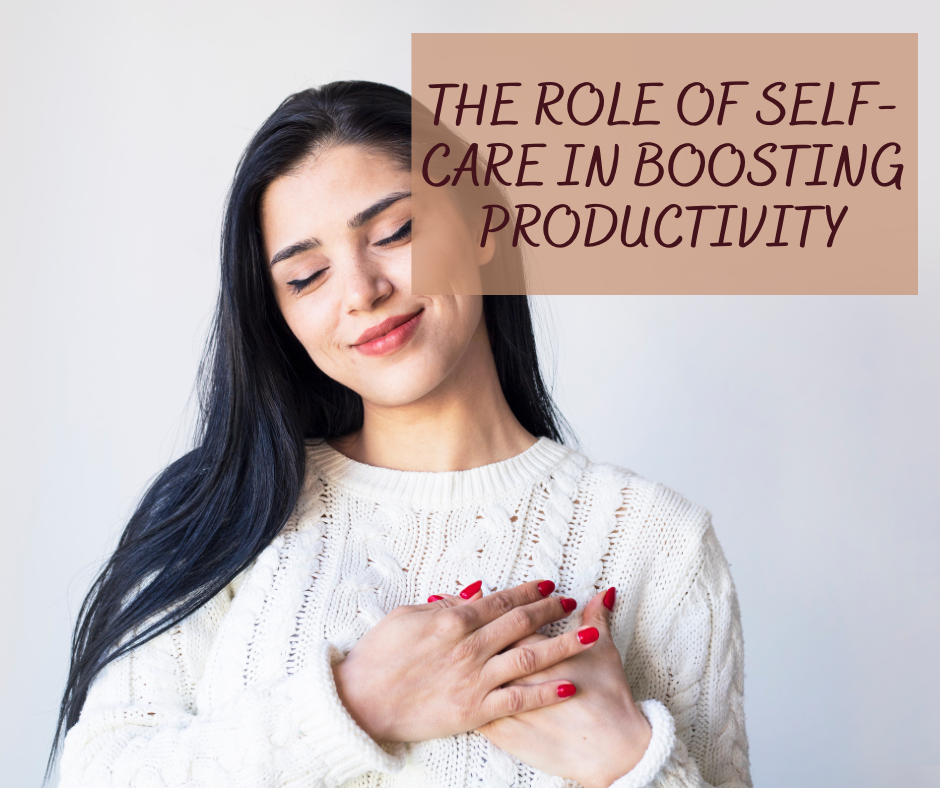
In today’s fast-paced world, the pursuit of productivity often leads us to prioritize work over personal well-being. However, this approach can be counterproductive. Self-care, which encompasses activities that promote physical, mental, and emotional health, is crucial for sustained productivity. By investing time in self-care, individuals can enhance their efficiency, creativity, and overall performance.
The Role of Self-Care in Boosting Productivity
Understanding Self-Care
Self-care is a broad concept that includes various activities aimed at maintaining and improving one’s health and well-being. It can range from basic practices such as getting adequate sleep, eating nutritious food, and exercising regularly, to more personalized activities like meditation, hobbies, and socializing. The essence of self-care lies in recognizing one’s needs and taking proactive steps to meet them.
The Connection Between Self-Care and Productivity
Physical Health and Energy Levels
The foundation of productivity is physical health. Regular exercise, a balanced diet, and sufficient sleep are essential components of self-care that directly impact energy levels and overall well-being. When the body is well-nourished and well-rested, it can function optimally, leading to increased energy levels and better focus. Conversely, neglecting physical health can result in fatigue, decreased concentration, and burnout.
Mental Clarity and Focus
Mental health is equally important for productivity. Stress, anxiety, and mental fatigue can significantly hinder one’s ability to concentrate and perform tasks efficiently. Self-care practices such as mindfulness, meditation, and relaxation techniques can help reduce stress levels and promote mental clarity. Taking regular breaks during work can also prevent mental exhaustion and improve focus.
Emotional Well-Being and Motivation
Emotional health plays a crucial role in maintaining motivation and a positive outlook. Engaging in activities that bring joy and fulfillment, such as hobbies, spending time with loved ones, or even taking a short walk in nature, can boost emotional well-being. When individuals feel emotionally balanced and content, they are more likely to approach tasks with enthusiasm and resilience.
Practical Self-Care Strategies for Enhancing Productivity
Establish a Routine
Creating a daily routine that includes self-care activities can help integrate them into one’s schedule. This might involve setting aside time for exercise, meal planning, and relaxation. A consistent routine can provide structure, reduce decision fatigue, and ensure that self-care becomes a non-negotiable part of the day.
Prioritize Sleep
Adequate sleep is fundamental for cognitive function and overall health. Establishing a regular sleep schedule, creating a calming bedtime routine, and minimizing screen time before bed can improve sleep quality. A well-rested mind and body are more capable of handling the demands of the day efficiently.
Mindfulness and Meditation
Practicing mindfulness and meditation can enhance focus, reduce stress, and improve emotional regulation. Even a few minutes of mindfulness each day can have a profound impact on mental clarity and overall well-being. Techniques such as deep breathing, progressive muscle relaxation, and guided imagery can be easily incorporated into a busy schedule.
Healthy Eating Habits
Nutrition plays a vital role in energy levels and cognitive function. Consuming a balanced diet rich in fruits, vegetables, whole grains, and lean proteins can provide sustained energy throughout the day. Staying hydrated and avoiding excessive caffeine and sugar intake can also prevent energy crashes and maintain focus.
Physical Activity
Regular physical activity is not only beneficial for physical health but also for mental and emotional well-being. Incorporating exercise into the daily routine, whether it’s a morning jog, a yoga session, or a dance class, can boost energy levels, reduce stress, and improve mood.
Social Connections
Human beings are inherently social creatures, and maintaining healthy relationships is essential for emotional well-being. Taking time to connect with friends, family, or colleagues can provide support, reduce feelings of isolation, and enhance overall happiness. Social interactions can also offer new perspectives and ideas, contributing to creativity and problem-solving.
Conclusion
Self-care is not a luxury; it is a necessity for achieving and sustaining productivity. By prioritizing physical, mental, and emotional well-being, individuals can enhance their efficiency, creativity, and overall performance. Incorporating self-care practices into daily routines can lead to a healthier, more balanced life, ultimately boosting productivity. In the long run, investing in self-care is an investment in one’s success and fulfillment.
In essence, taking care of oneself is the first step towards taking care of one’s responsibilities. By recognizing the intrinsic link between self-care and productivity, individuals can create a harmonious balance that fosters both personal well-being and professional success.
